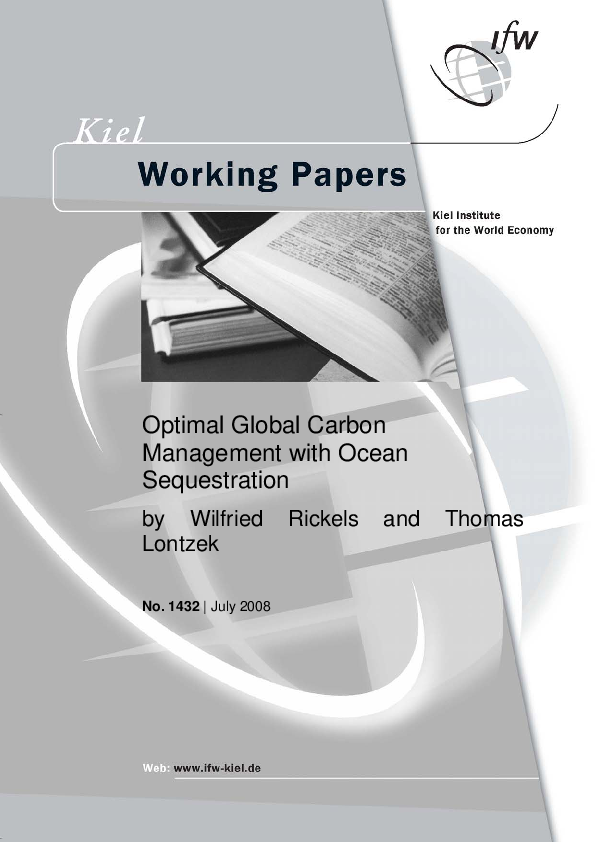Journal Article
Optimal global carbon management with ocean sequestration
Authors
Publication Date
DOI
JEL Classification
Key Words
Related Topics
Climate
We investigate the socially optimal intervention in the global carbon cycle. Limiting factors are (a) increasing atmospheric carbon concentration due to fossil fuel-related carbon emissions, and (b) the inertia of the global carbon cycle itself. Accordingly, we explicitly include the largest non-atmospheric carbon reservoir, the ocean, to achieve a better representation of the global carbon cycle than the proportional-decay assumption usually resorted to in economic models. We also investigate the option to directly inject CO2 into the deep ocean (a form of carbon sequestration), deriving from this a critical level for ocean sequestration costs. Above this level, ocean sequestration is merely a temporary option; below it, ocean sequestration is the long-term option permitting extended use of fossil fuels. The latter alternative involves higher atmospheric stabilization levels. In this connection it should be noted that the efficiency of ocean sequestration depends on the time-preference and the inertia of the carbon cycle.





